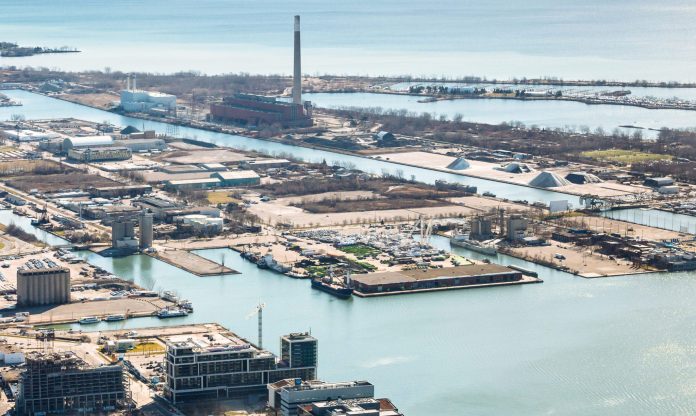Sidewalk Labs, the smart-city side project of Google-parent company Alphabet, has pulled the plug on its controversial tech-fuelled urban re-development project in Toronto, blaming “economic uncertainty” brought on by the coronavirus pandemic.
The firm said the economic impact of the coronavirus crisis was felt in the real estate market in Toronto, and had made the financial viability of its $1 billion Quayside project in the city’s waterfront “too difficult”.
Daniel Doctoroff, chief executive at Sidewalk Labs, commented: “It has become too difficult to make the 12-acre project financially viable without sacrificing core parts of the plan we had developed together with Waterfront Toronto to build a truly inclusive, sustainable community.
“After a great deal of deliberation, we concluded that it no longer made sense to proceed with the Quayside project, and let Waterfront Toronto know yesterday.”
The decision appeared to be sudden, and was greeted with shock, even though the project had met repeatedly with controversy, around its use of city and citizen data, and the public consultation on whether to move forward with the proposal had been extended by six weeks until mid-May in order to gauge the public mood.
Waterfront Toronto, which has managed Sidewalks Labs’ involvement in the redevelopment project, said the decision was “not the outcome… [it] had hoped for.”
Stephen Diamond, board chair on the Quayside Project, said: “Today there is global financial uncertainty, but Waterfront Toronto has confidence in the city’s economic future, and will take the long view when making real estate and development decisions on Toronto’s Waterfront.
“Quayside remains an excellent opportunity to explore innovative solutions for affordable housing, improved mobility, climate change, and several other pressing urban challenges that Toronto – and cities around the world – must address in order to continue to grow and succeed.
Sidewalk Labs and Waterfront Toronto set out to redevelop the Quayside area in October 2017, as a more sustainable and affordable smart-city community, buoyed by technological innovation.
Controversy about the project arose partly because Sidewalk Labs had been reluctant to confirm one way or another how data gathered by technology about citizens and the environment would be governed.
Ontario’s former privacy commissioner resigned in late 2018 from a consulting role at Sidewalk Labs over its failure to guarantee citizens’ personal data would be protected at the smart-city development. At the time, Sidewalk Labs responded by proposing an independent ‘urban data trust’ to take charge of city data.
That idea was scrapped. In October 2019, the board had sought assurances and resolved concerns about “several areas” in the Sidewalk Labs proposal. Sidewalk Labs made “significant changes”, including by eliminating the proposed ‘urban data trust’, along with all references to “urban data”, and a deal to keep all personal information in Canada.
As well, the project remit has reduced, to cover just 12 acres of land on the Quayside, instead of 190 acres, as set out in Sidewalk Labs’ original proposal for a Innovative Design and Economic Acceleration (IDEA) district. Sidewalk Labs also confirmed it will partner with one or more real estate developers, rather than act as ‘lead developer’, itself. Waterfront Toronto would lead a public procurement for developers.
But a public vote was still required. The board advised a formal evaluation of the plan and further public consultation, originally scheduled for late March, but postponed until May 20. “Let me be clear,” Diamond said at the time. “This is not a done deal. There is still much work to do before a final decision.”
Doctoroff said last week: “It is with great personal sadness and disappointment that I share that Sidewalk Labs will no longer pursue the Quayside project.” But he said the groundwork will be picked up elsewhere, and that Sidewalk Labs has spun off a number of continuing corporate interests in urban mobility, next-generation infrastructure, and community-based healthcare.
He added: “While we won’t be pursuing this particular project, the current health emergency makes us feel even more strongly about the importance of reimagining cities for the future. I believe that the ideas we have developed over the last two-and-a-half years will represent a meaningful contribution to the work of tackling big urban problems, particularly in the areas of affordability and sustainability. This is a vital societal endeavor, and Sidewalk Labs will continue our work to contribute to it.”

